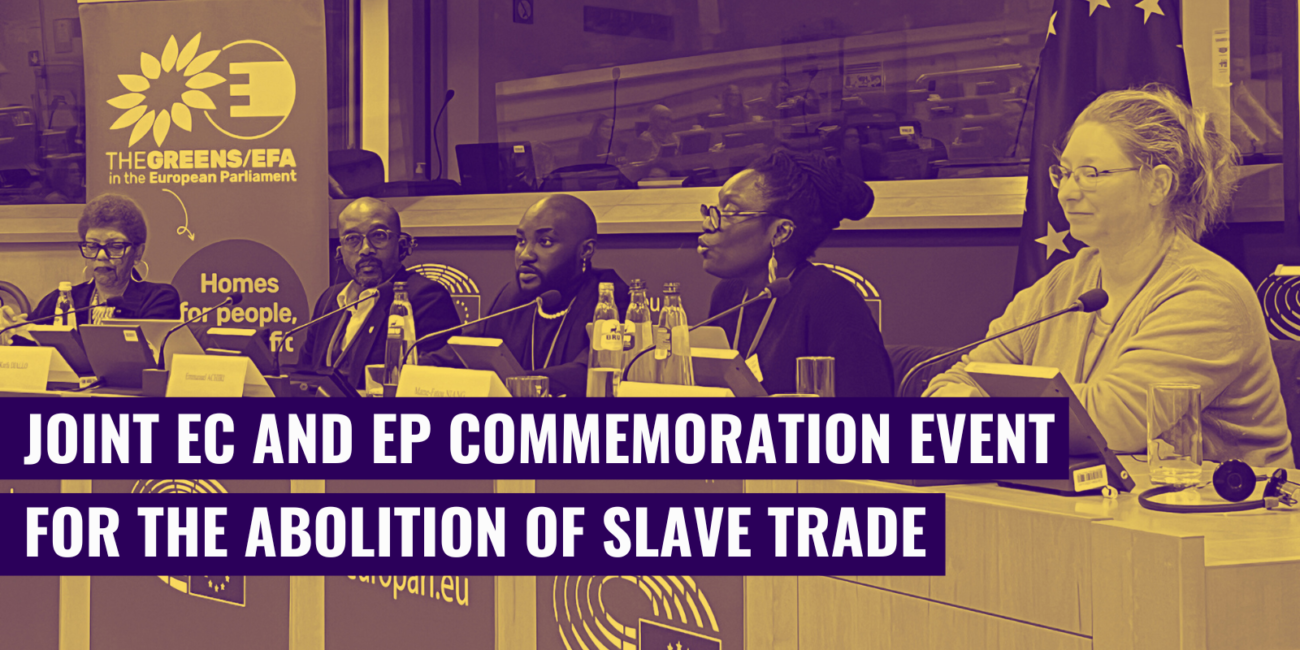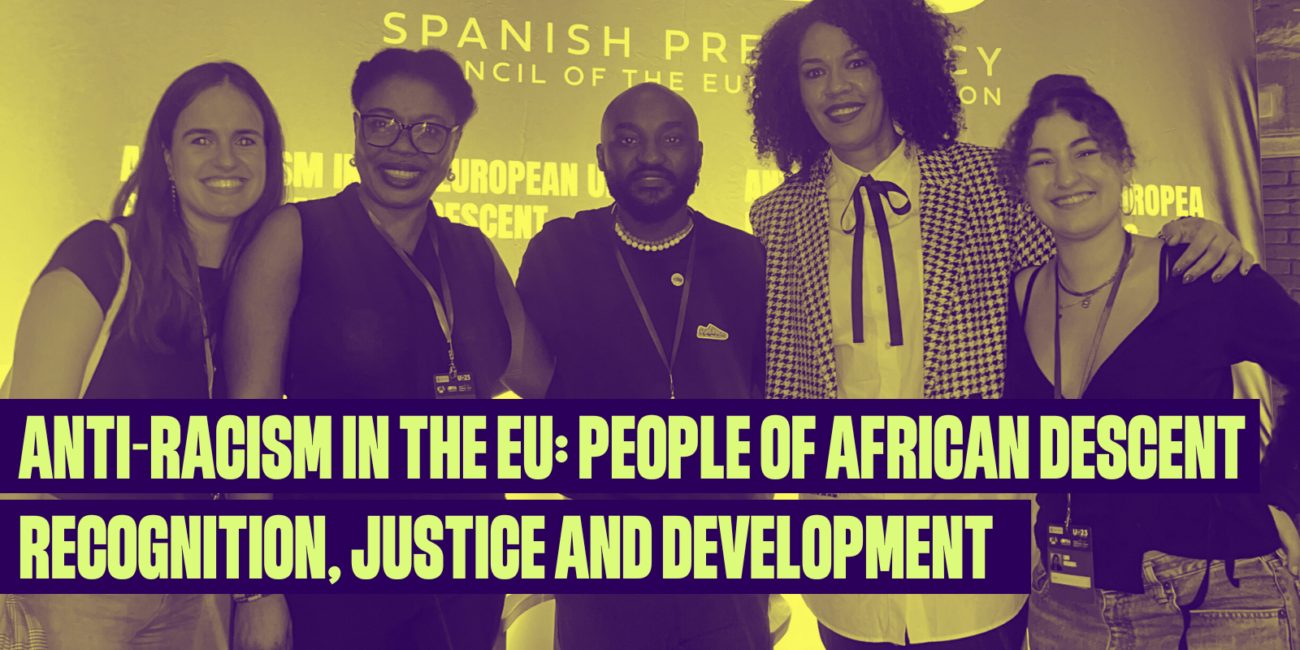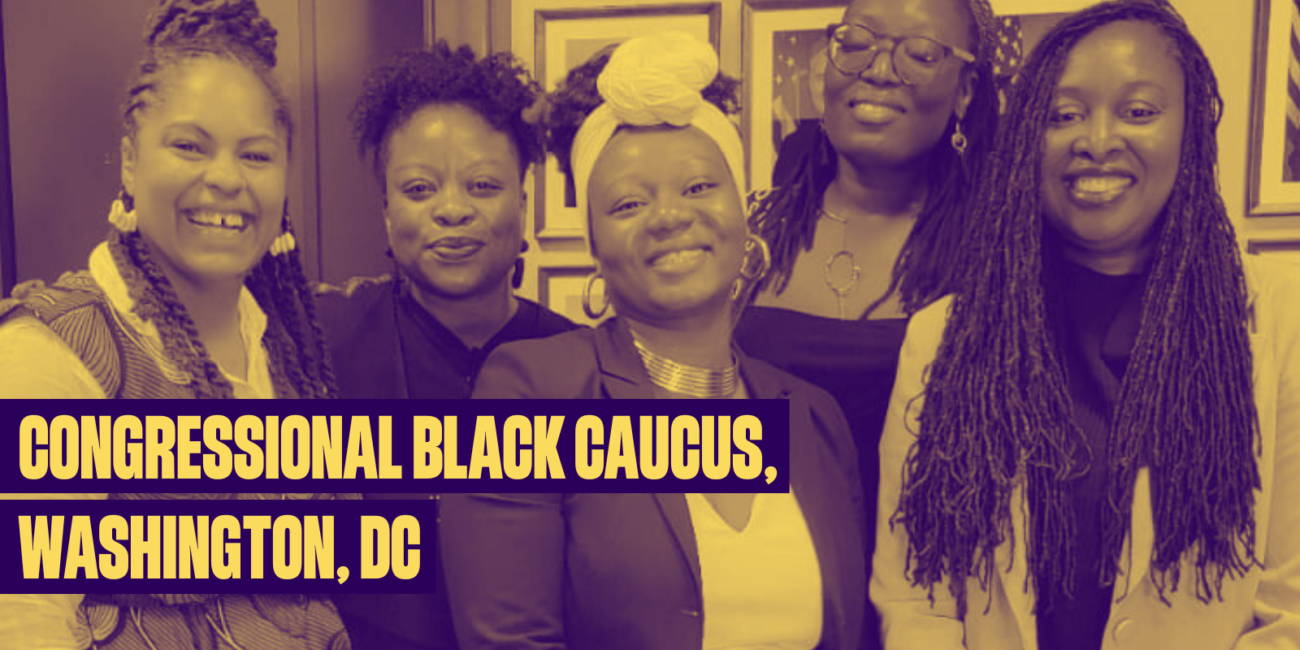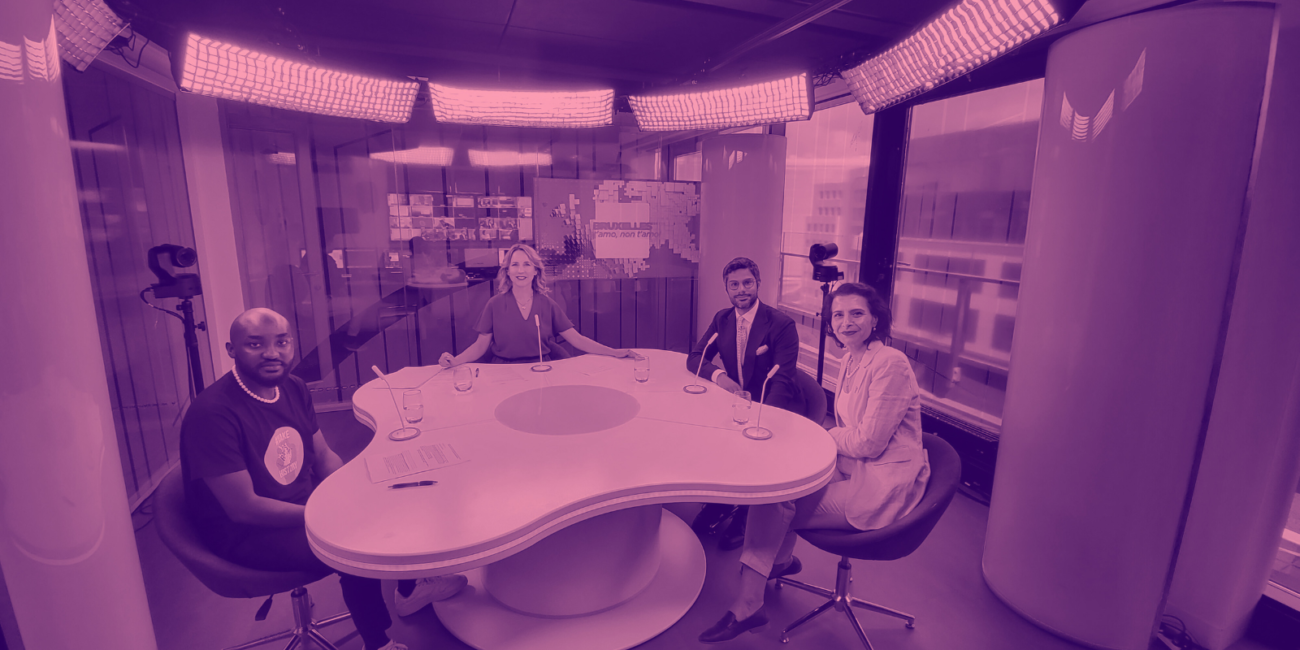AFROPHOBIA
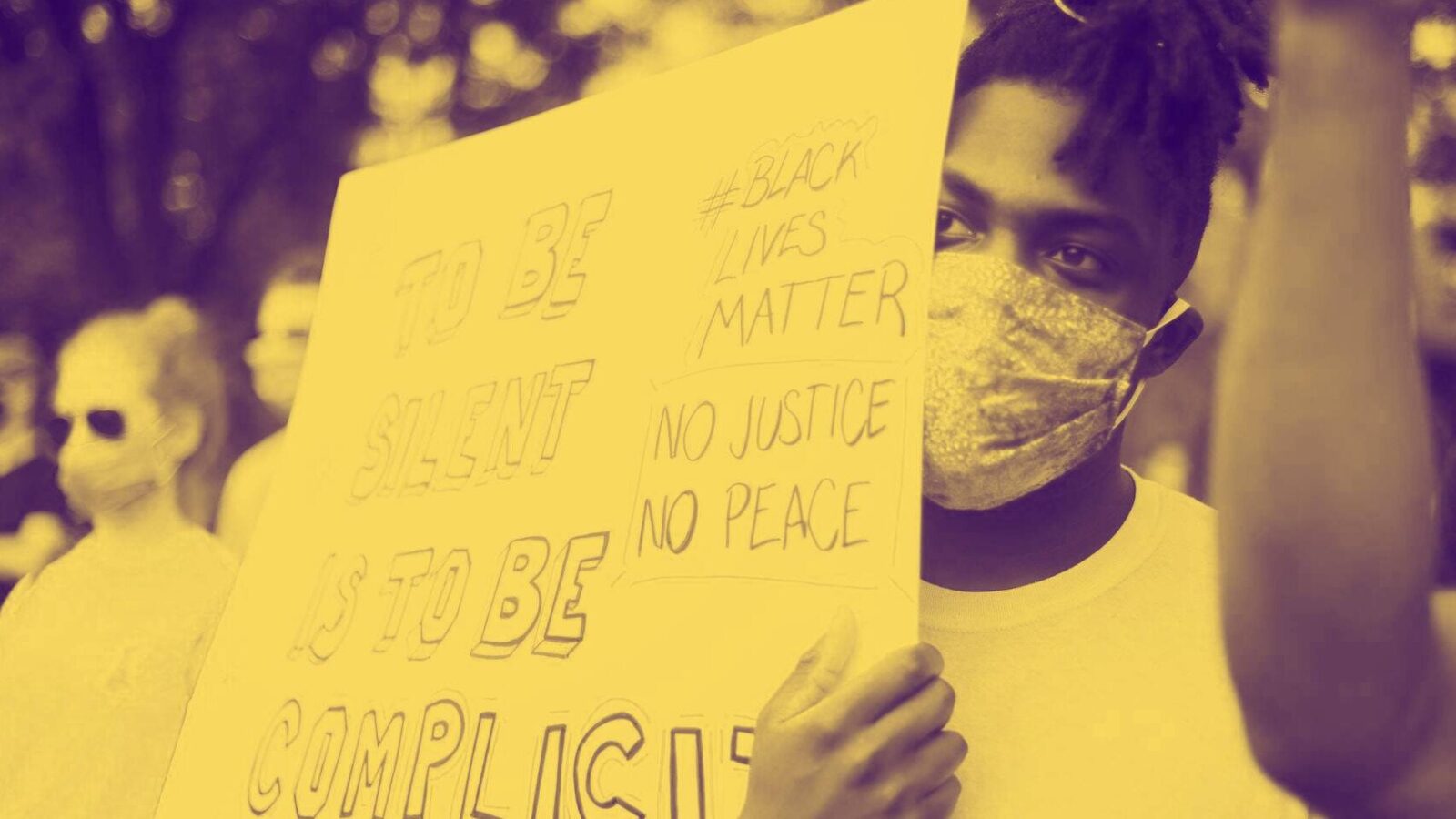
People of African descent experience widespread racism and discrimination across the EU and in all areas of life, including employment, education, policing and the criminal justice system. Recognising and addressing Afrophobia as a specific form of racism that affects people of African descent and Black Europeans is essential to ensure their inclusion in Europe.
Read More
There are an estimated 15 million people of African descent and Black Europeans living in Europe, making them one of Europe’s largest marginalised communities. People of African descent and Black Europeans constitute a diverse group: while a part of the Black population are migrants, others have been present in Europe for several generations with a long history of citizenship, forming large and established Black communities. Discrimination and stigmatising perceptions due to their physical traits or visibility, regardless of their nationality or immigrant status, are often common experiences.
Discrimination in employment is prevalent and barriers are erected at every stage to prevent black people from gaining employment that matches their skills and experience. Black people are also particularly exposed to police violence, racial profiling, as well as racist violence and abuse from other members of the public. Black pupils experience racism in schools such as racist bullying and biased teaching materials and practice. This can have significant implications on educational attainment and life chances of Black people. Other examples of discrimination include refusal of health treatment for Black people and prejudice shown by health care staff; significant discrimination in the private rental market; and stereotypical representations in the media.
Afrophobia is a specific form of racism that refers to any act of violence and discrimination including racist speech, fuelled by historical abuses and negative stereotyping, and leading to the exclusion and dehumanisation of people of African descent. It is the result of the social construction of race to which genetic and/or cultural specificities and stereotypes are attributed (racialisation). It can take many forms: dislike, bias, oppression, racism and structural and institutional discrimination, among others.
There is currently no EU or national policy developed specifically to combat racism and discrimination against people of African descent and Black Europeans. Despite EU and national legislation providing legal remedies for discrimination, Afrophobia in the EU is still a reality. Strong and specific policies are needed to address Afrophobia, including its structural dimensions and impact on economic and social outcomes for people of African descent and Black Europeans, including in employment, housing, education, health, political participation, criminal justice and other sectors.
What are we doing about it?
ENAR calls for national strategies to combat Afrophobia and promote the inclusion of people of African descent and Black Europeans, based on the model of the European Framework for National Roma Integration Strategies adopted by EU Member States in 2011. The framework will serve as a means to develop targeted and effective strategies to counter the structural and everyday racism that prevents the inclusion of many Black people in European society.
The following elements should be put in place by Member States in order to ensure the success and efficiency of the national strategies:
![]() Recognition: We are asking EU decision makers to take steps to publicly recognise Afrophobia and thus describe a reality that so far remains invisible – especially given Europe’s role in the slave trade and colonisation. Such recognition is a necessary basis for all legal and policy attempts to reduce the effects of racial discrimination against people of African descent and Black Europeans across Europe.
Recognition: We are asking EU decision makers to take steps to publicly recognise Afrophobia and thus describe a reality that so far remains invisible – especially given Europe’s role in the slave trade and colonisation. Such recognition is a necessary basis for all legal and policy attempts to reduce the effects of racial discrimination against people of African descent and Black Europeans across Europe.
![]() Equality data collection: Proving racial discrimination is difficult; often it is only when the most obvious blunders occur that racism can be identified. ENAR is therefore calling for disaggregated equality data collection to document racist crime, discrimination, racism and exclusion impacting people of African descent and Black Europeans and to inform and monitor policies and measures aimed at reducing racism and discrimination.
Equality data collection: Proving racial discrimination is difficult; often it is only when the most obvious blunders occur that racism can be identified. ENAR is therefore calling for disaggregated equality data collection to document racist crime, discrimination, racism and exclusion impacting people of African descent and Black Europeans and to inform and monitor policies and measures aimed at reducing racism and discrimination.
![]() Equal access and rights: EU Member states should ensure that people of African descent and Black Europeans have equal access to and rights in employment, quality education, health care and justice. They should also end discriminatory policing of people of African descent and Black Europeans to end racial disparities in police profiling, sentencing, incarceration, and other inequities in the justice system.
Equal access and rights: EU Member states should ensure that people of African descent and Black Europeans have equal access to and rights in employment, quality education, health care and justice. They should also end discriminatory policing of people of African descent and Black Europeans to end racial disparities in police profiling, sentencing, incarceration, and other inequities in the justice system.
QUICK
FACTS
In Finland, unemployment rates are 3 times higher for people of African origin compared to the national average
In the United Kingdom, Black people are at least 6 times more likely to be stopped and searched than a white person
In Sweden, 17% of hate crimes targeted Black people in 2014
News & Resources
Afrophobia
in Europe
Debate
between activists and experts
FAQs
What is Afrophobia?
Afrophobia is a term used to describe the specificities of racism that targets people of African descent. Afrophobia seeks to dehumanise and deny the dignity of a large group of people. Afrophobia manifests itself through acts of racial discrimination – direct, indirect and structural – and violence, including hate speech, targeting Black people. It can take many different forms: dislike, personal antipathy, bias, bigotry, prejudice, oppression, racism, structural and institutional discrimination, racial and ethnic profiling, enslavement, xenophobia, societal marginalisation and exclusion, systematic violence, hate speech and hate crime.
Afrophobia is based on socially constructed ideas of ‘race’. This is associated with understandings of racism as a concept and correlates to historically repressive structures of colonialism. The categorisation of physical attributes (e.g. skin pigmentation) considered as symbols of an inferior and/or incompatible difference is deeply embedded in the collective European imagination and continues to impact the lives of people of African descent and Black Europeans.
The use of the term Afrophobia has itself been controversial within the anti-racism movement. ENAR recognises this disagreement and welcomes further debate. ENAR understands that using the suffix ‘phobia’, such as in Islamophobia or Homophobia, is not ideal as it could lead people to mistaking racism for an actual fear. ENAR has however preferred to focus on one term understood and defined as encapsulating the issue of racism and structural discrimination affecting people of African descent.
What is the situation for Black people in EU Member States?
When it comes to employment, people of African descent and Black Europeans still face barriers to racial equality. Many factors determine the employability of individuals such as education, financial support, social networks and even gender.
According to reports across the 20 European countries, the education system at all levels is not only reinforcing stereotypes and racist attitudes but also carrying out discriminatory acts. Education is one area where institutional discrimination can take place on a large scale and have a long-lasting and far-reaching impact on the whole society.
Many Black public figures and in particular politicians experience racist, anti-migrant, verbal and online abuse. Moreover, in 2014-2015, several racist or derogatory remarks were made by people holding public positions, creating an atmosphere that enables racist abuse to be perpetuated in society.
ENAR’s members report poorer health for Black populations and point to several possible causes linked to socio-economic status, area deprivation, and the impact of racism and discrimination.
There is evidence of discrimination within housing, such as landlords refusing Black people and quoting higher rents to Black people.
Black people are disproportionally affected by ethnic profiling by the police. In addition, Black people are exposed to police violence by agents who use racist stereotypes in their work. Finally, several European countries report of disproportionately high numbers of Black people in prison.
Black people in Europe report low levels of trust in the police, resulting in low- or non-reporting of hate (or other) crimes. Visible minorities are at higher risk of experiencing violence and racist crimes that target Black people.
The current attention on migration into Europe by many political actors appears to be fanning the flames of anti-migrant, Islamophobic and racist movements. Black migrants, refugees, asylum seekers and Black Europeans are reportedly suffering an increase in violent hatred and discrimination across all areas of life.
What is the existing EU legislation on Afrophobia?
There are a number of legal measures in Europe that tackle racism and anti-discrimination. EU Member States have been required now for over a decade to implement the Racial Equality Directive (2000/43/EC). Another key piece of EU legislation is the Framework Decision on Racism and Xenophobia (2008/913/JHA) which focuses on racist crime and speech. Article 21 (1) of the Charter of Fundamental Rights of the EU prohibits discrimination based on any ground such as race or ethnic origin. However, EU anti-discrimination legislation is not always implemented and enforced. Few infringement proceedings have been launched and even fewer decisions by the Court of Justice of the European Union have been made.
There is no specific EU policy for people of African descent and Black Europeans. The EU Framework for National Roma Integration Strategies (NRIS), for example, provides a policy framework to encourage Member States to address some inequalities, disadvantage and discrimination faced by Roma. Although the NRIS have been criticised for the lack of focus on racism and anti-Gypsyism, they still serve as an important mechanism to improve the situation for a minority group in Europe. ENAR is therefore calling for PAD/BE to benefit from similar strategies which will ensure their social inclusion and protection from discrimination for the benefit of the whole society. Without a specific focus on tackling racial inequalities for Black people at an EU level there may be little impetus for national governments to act accordingly.
How will an EU Framework for national strategies improve the situation of people of African descent and Black Europeans?
Afrophobia is a pressing issue across Europe and therefore needs to be addressed and countered on a European level in a coherent way, with a targeted approach, to ensure an equal level of protection of people of African descent and Black Europeans. An EU Framework for national strategies would ensure a common ground to implement existing EU and international law, while ensuring that national situations and specificities are addressed.
A Framework would complement existing EU strategies such as the EU 2020 strategy. The Europe 2020 strategy is about delivering growth that is smart, sustainable and inclusive. To measure progress in meeting the Europe 2020 goals, five headline targets have been agreed on for the whole EU. No specific targets have been set for ethnic minorities despite the extent of discrimination in the EU.
Importantly, a Framework would assist in garnering solidarity between people of African descent, Roma, and others facing discrimination by increasing mutual acknowledgement and support across vulnerable and disenfranchised communities to implement and strengthen existing EU equality, anti-discrimination and inclusion legislation and initiatives, including the EU Framework for National Roma Integration Strategies. Adopting new initiatives for an increasingly diverse Europe would benefit both minority and majority communities, including possible economic benefits.
MEMBERS
The Nkyinkyim Project - Africa Centre Ireland & IDPAD Coalition UK
Two ENAR members in Ireland and the United Kingdom teamed up to document institutional racism in these two countries, in particular Afriphobia.
The ‘No to Brain Waste Campaign’ by Africa Centre Ireland campaigned to stop the underemployment of skilled and qualified professionals and workers of migrant and in particular of African descent.
The IDPAD Coalition UK held roundtable meetings in Middlesbrough, Bristol, Northampton, Brighton and London, during which participants discussed their experience of Afriphobia, structural and institutional racism.
The two organisations launched a report defining Afriphobia, drawing on contributions from the roundtable meetings, and putting forward recommendations for change in December. 21 Organisations and 79 individuals have so far endorsed the definition.
In 2020, they will launch a “Call it by its Name Afriphobia” campaign targeting African descent communities and continue joint work to tackle sructural and institutional racism.
Conference “Afrophobia & Intersectionality – Social Cohesion” - European Network of Women of African Descent (ENWAD), Spain
The European Network of Women of African Descent (ENWAD) organised a conference on Afrophobia in Barcelona to raise awareness on the situation of people of African descent in Spain. For the first time, ENWAD was able to gather a large number of women and young adolescents of African descent who were able to give their own accounts of what it is like to be black in Spain to a wider audience – creating awarness on the racism, racial discrimination and exclusion they face. Several youth organisations tackling Islamophobia also participated in the conference.
ENAR member organisations working on Afrophobia
Radio Afrika (Austria)
CRAN – Conseil Représentatif des Associations Noires de France (France)
Collectif contre le Contrôle au Faciès (France)
Each One Teach One – EOTO (Germany)
Initiative Schwarze Menschen in Deutschland (Germany)
ENAR Ireland – Afrophobia in Ireland: report (2015) (Ireland)
AkiDwA (Ireland)
Pan-African Movement for Justice (Sweden)


